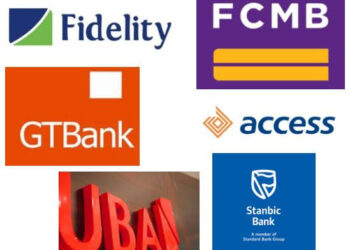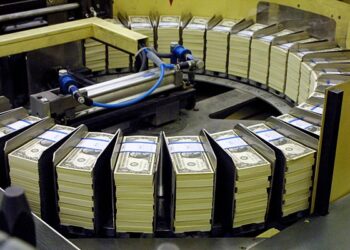… DMBs Compel Customers To Transfer Rather Than Withdraw Large Cash As Vaults Dry Up
John Danjuma Omachonu
Nigerian banks already facing difficult operating environment characterised by pressure on the naira, limited access to foreign currency, reduced oil revenue due to crude oil theft and policy uncertainty, have one more thing to worry about, the rising yield on fixed instruments, treasury bills.
Already, the banks have been contending with the two-year savings bond introduced by the Debt Management Office some years ago that are targeted at the retail investors with yields on offer as high as 13 percent and minimum subscription levels of N5,000.
The bond, which is being aggressively marketed by some financial institutions as agents seem more appealing with payment of interest quarterly, and a bullet repayment for principal at maturity.
The widely accepted bond had been posing a problem for deposit money banks (DMB), which are currently paying peanuts on savings deposits, by raising their cost of funds.
The development has resulted in preference for high networth individuals with lower risks by bank’s, with the attendant reduction in financial intermediation.
Besides, the many charges and deductions as well as poor services by the banks have continued to make investors look out for other investment options.
Checks by metrobusinessnews.com (MBN) on Wednesday, July 26, 2023, show that most banks are facing acute liquidity squeeze.
The situation has degenerated to the extent that some banks find it difficult to pay cash as low as three hundred thousand naira, (N300, 000) on the counter.
Rather, thy have resorted to advising and sometimes, compelling customers to opt for transfer, with the hope that other customers will come for deposits.
The situation is compounded by current efforts by CBN at luring investors with higher treasury bills yield.
Understandably too, CBN is under pressure to improve dollar liquidity in the foreign exchange market and cause a moderation in naira exchange rate until the market attains equilibrium level, hence, the current desperation to force domestic interest rate to moderate.
But some analysts say, heightening insecurity and uncertainty in the political space, among others, may be responsible for the current flight to safety by investors.
Besides, they further argue that the structurally buoyant system liquidity may be responsible for the bullish sentiments that have dominated the fixed income market.
This is exacerbated by lack of coordination between the fiscal and monetary policy measures.
ALSO READ:At 22.8% inflation, Investors Bid N384bn Worth Of Treasury Bills At 12.15% Per Anum
Specifically, the average yield on the 356-day Nigerian Treasury bills (NTB) increased to 12.15 per cent on Wednesday, from the previous 5.94 per cent auction, just a day after the Monetary Policy Committee of Central Bank of Nigeria (CBN) raised its Monetary Policy Rate (MPR) to 18.75 per cent from 18.5per cent. According to the CBN NTB auction result, the 91-day interest rate increased to six per cent from 2.86 per cent, while 180-day auction interest rate was at eight per cent from 3.5per cent. The CBN offered to raise N261.3 billion at the 364-day NTB auction, but recorded total subscription and allotment of N383.88 billion and N255.4 billion respectively. Consequently, at the 91-day NTB auction, the CBN offered investors N1.73 billion and it recorded total subscription of N7.84 billion and CBN eventually allotted N2.85billion. Part of the desperation of CBN is the consistent hike in the Monetary policy Rate, also on the fixed income market, since the beginning of the year, for instance, the analysts say they expect the financial system liquidity profile to remain healthy in the near term, partly driven by increased FAAC inflows, as seen in the last allocation shared among the tiers of government. “With our expectation that the MPC is at the end of its monetary policy tightening cycle, risk appetite for mid to long-dated bonds is likely to improve. Nonetheless, we maintain our expectations that yields in the fixed-income market are still bound to rise further from current levels. “Our prognosis is hinged on our expectation of a sustained imbalance in the supply and demand dynamics, more so that the FGN’s 2023FY borrowing needs remain high,” says an analyst. Meanwhile, the stock market arm, the Nigerian Exchange Limited (NGX) yesterday ended its four-day winning streak with a decline of N187 billion on investors’ profit-taking in MTN Nigeria Communications (MTNN) and 23 others. The NGX All Share Index (ASI) was down by 303.86 basis points or 0.46 per cent to close at 65,687.16 basis points. Also, market capitalisation declined by N187 billion to close at N35.746 trillion. The downtrend was impacted by losses recorded in medium and large capitalised stocks, amongst which were MTN Nigeria Communications (MTNN), Unilever Nigeria, Cadbury Nigeria, Nigerian Exchange Group and Lafarge Africa. As measured by market breadth, market sentiment was positive, as 32 stocks gained relative to 24 losers. Courteville Business Solutions, NCR Nigeria and Seplat Energy recorded the highest price gain of 10 per cent each to close at 66 kobo, N3.96 and N1,693.60 respectively, per share. FTN Cocoa Processors followed with a gain of 9.92 per cent to close at N2.66, while Japaul Gold & Ventures and Livestock Feeds rose by 9.90per cent each to close at N1.11 and N2.11 respectively, per share. On the other hand, Cadbury Nigeria and Unilever Nigeria led the losers’ chart by 10 per cent each to close at N15.30 and N15.75 respectively, while Multiverse Mining and Exploration followed with a decline of 9.97 per cent to close at N2.71, per share. Omatek Ventures depreciated by 9.62 per cent to close at 47 kobo, while Champion Breweries declined by 7.45 per cent to close at N3.48, per share. The total volume of trade declined by 9.59 per cent to 500.430 million units, valued at N7.144 billion, and exchanged in 7,345 deals.
Transactions in the shares of United Bank for Africa (UBA) topped the activity chart with 58.309 million shares valued at N871.359 million. Access Holdings followed with 55.244 million shares worth N991.195 million, while Universal Insurance traded 32.665 million shares valued at N7.639 million. FBN Holdings (FBNH) traded 28.026 million shares valued at N590.512 million, while Zenith Bank sold 26.476 million shares worth N933.512 million.














